nlopchantamang.com
The Frontline Needs Startups: New Insights on the Growing Demand for Mental Health Services
Ethan Brooks
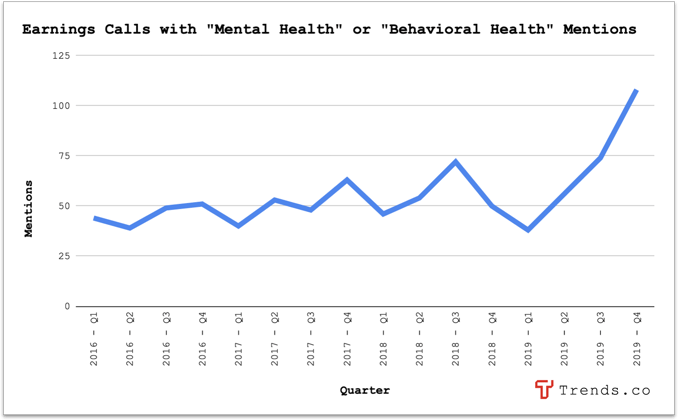
Source: Accenture’s Breakthrough Behavioral Health Access Report
The Signal: Back in April, we wrote about how employers were embracing mental health, with 95% of those surveyed planning to offer virtual mental health services to employees by 2022. We pointed to several opportunities, including PTSD treatment apps, employee assistance programs, and infrastructure for virtual mental health providers.
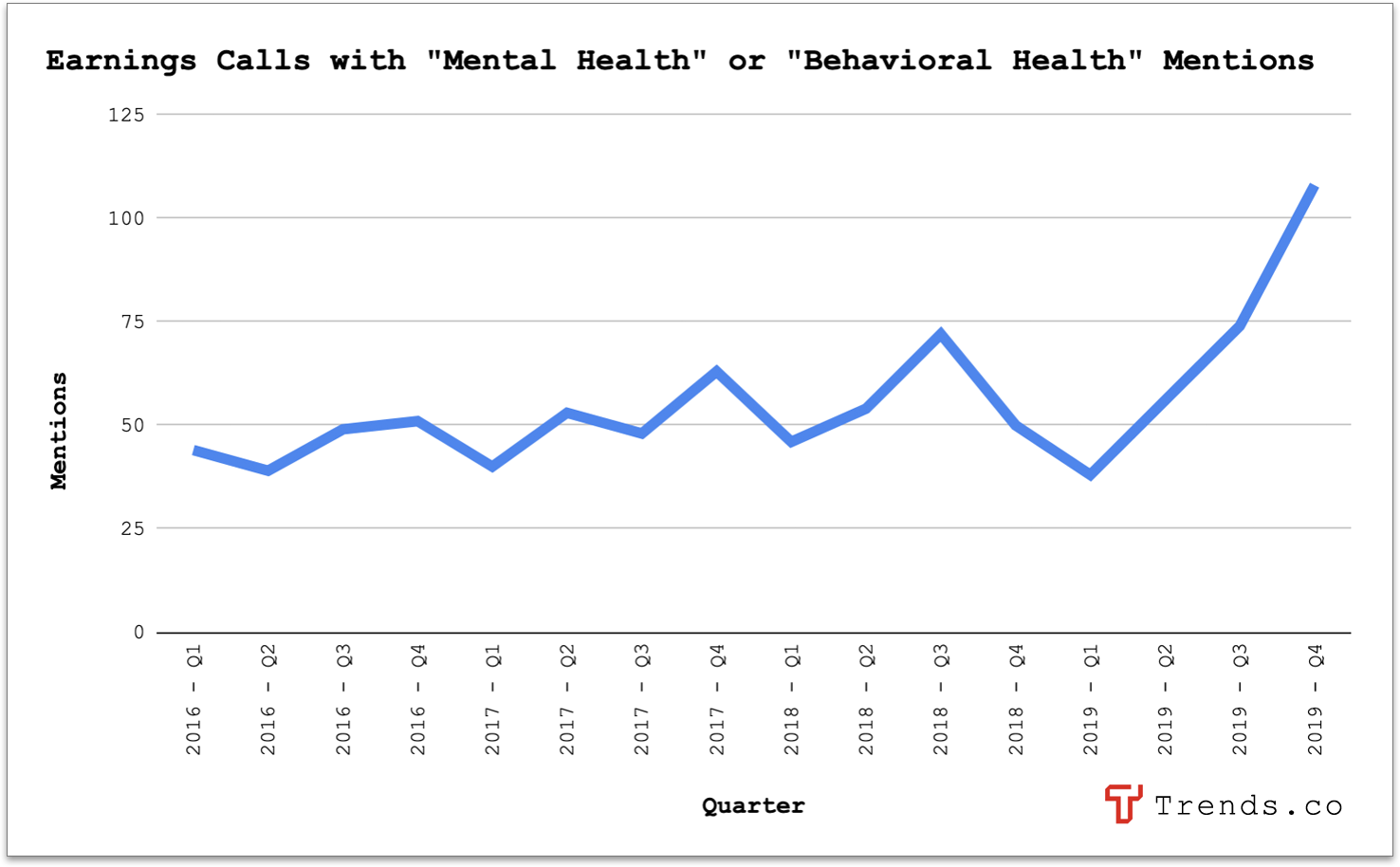
Since Then: Severe economic uncertainty and widespread social unrest have compounded the stress of the global pandemic. The UN released a dossier on COVID-19’s impact on mental health worldwide, and research from Accenture claimed that by 2025 the US alone will be facing a shortage of 250k mental health practitioners.
“[Since April,] more people are talking about mental health, which is good,” Stephen Hays told Trends. Hays is the founder of What If Ventures -- a VC firm that invests exclusively in mental health startups.
Since starting in January, What If has deployed $3m in funding and built an active community of ~1k mental health founders on Slack.
“But it’s further exacerbating the supply/demand imbalance,” Hays said. “More people are realizing they need help, and seeking help at a far greater rate than we are seeing ‘supply’ of help come online in the market. We need more resources, and more funding, in order to meet the demand and that dynamic has only intensified since COVID began.”
Accenture’s recent mental health report echoes these sentiments.
“The case for virtual behavioral health services is clear,” it says. “There is a great need for these services now. Consumers are ready to adopt them.”
Looking Ahead: While mental health is a diverse field, 3 underserved areas have emerged in the wake of coronavirus:
Front-Line Medical Workers: Front-line workers have taken the brunt of this pandemic. The LA Times reported that 20-25% of medical workers in coronavirus hotspots could develop chronic anxiety, depression, and PTSD as a result of the pandemic -- a figure on par with returning combat veterans. Meanwhile, the UN’s paper on mental health reports that 47% of health care workers in Canada cited a need for psychological support, and health care workers in China “reported high rates of depression (50%), anxiety (45%), and insomnia (34%).”
The need could be even greater in the US which, at the time of writing, had 20x the reported caseload of Canada and China combined, according to Wikipedia’s ongoing case reporting.
Given that there are 16m+ health care workers in the US alone, and that the pandemic has affected every nation in the world, this points to an enormous group of people in need. While some cities like New York are scrambling to build their own support programs, research turns up no major companies or startups focused exclusively on the needs of this group.
Those who want to build in this space can find qualitative and quantitative data on the needs of 578 front-line workers by simply requesting access here.
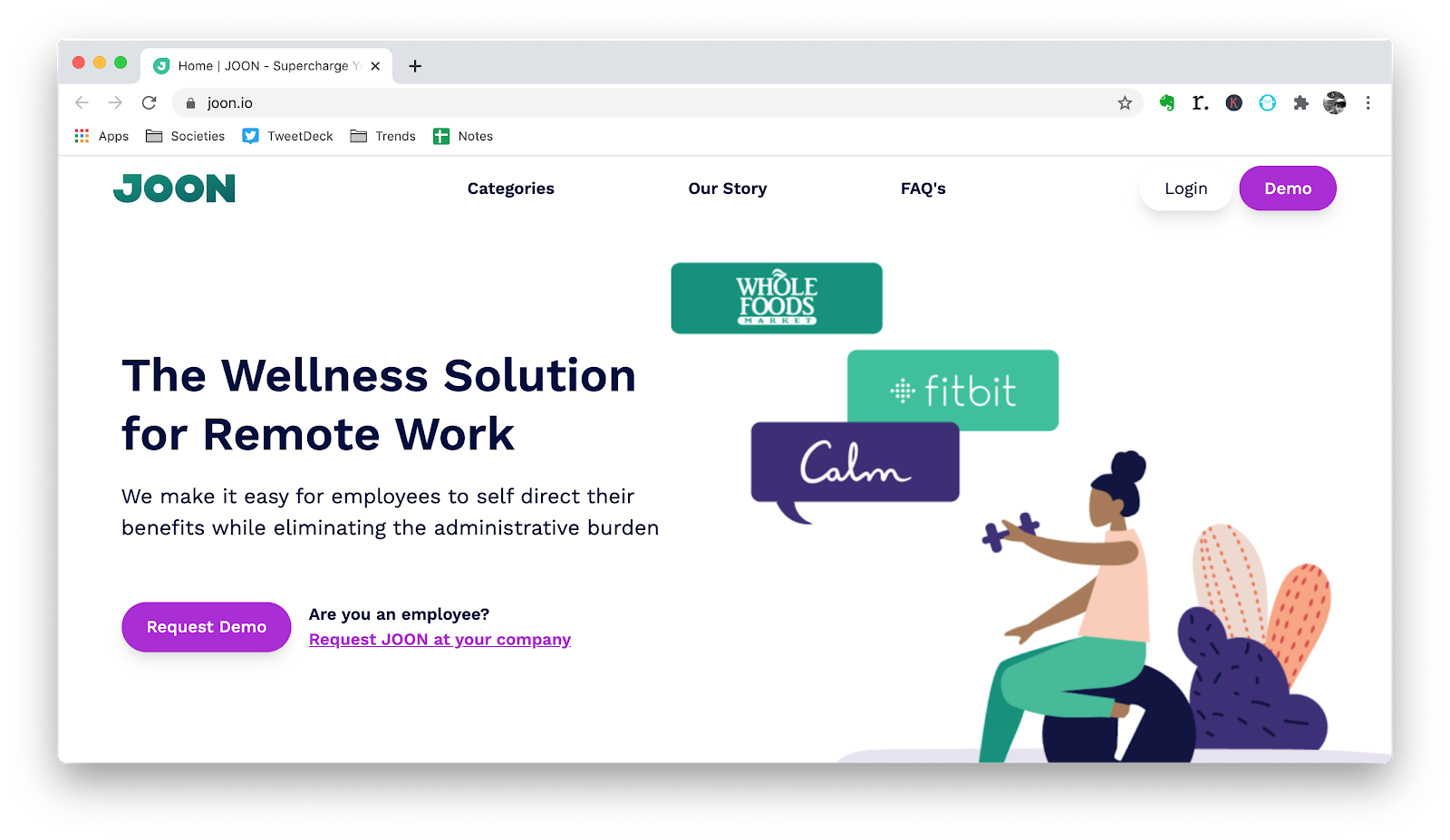
Remote Teams: In our original Signal, there were several opportunities to help mental health providers transition their businesses from in-person to remote. Those needs still exist, along with a host of new ones experienced by newly remote companies that now need help supporting the mental health of geographically distributed workers. Examples include:
- Joon -- An employee benefit suite specifically designed for remote teams, with access to mental health solutions like Headspace and Glo’s online yoga and meditation classes.
- Panion -- A tool that helps businesses create a sense of connection between physically dispersed employees.
- Lumiate -- An innovative new web app that uses screen light to help employees be more mindful all day.
Mental Fitness: Some companies are making mental health preventive, rather than prescriptive. These “mental fitness” providers serve as gyms for the mind, helping members measure and improve their mental performance. Examples include:
- KeepAppy -- A 21st century Tamagotchi, which trains you to look after your own mental health by caring for a digital avatar.
- FlowLab -- Helps users achieve states of peak performance.
- Liberate -- A studio in our Trends SMB Database focused on mental fitness. When asked about where she sees exciting opportunities, founder Olivia Bowser said, “Mental health is completely untapped in the boutique fitness space. I’m eager to grow mental fitness to be as strong as physical fitness.”
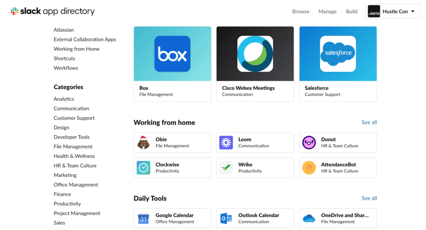
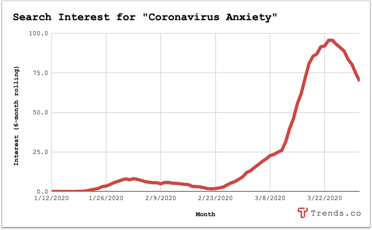
Leave a Comment